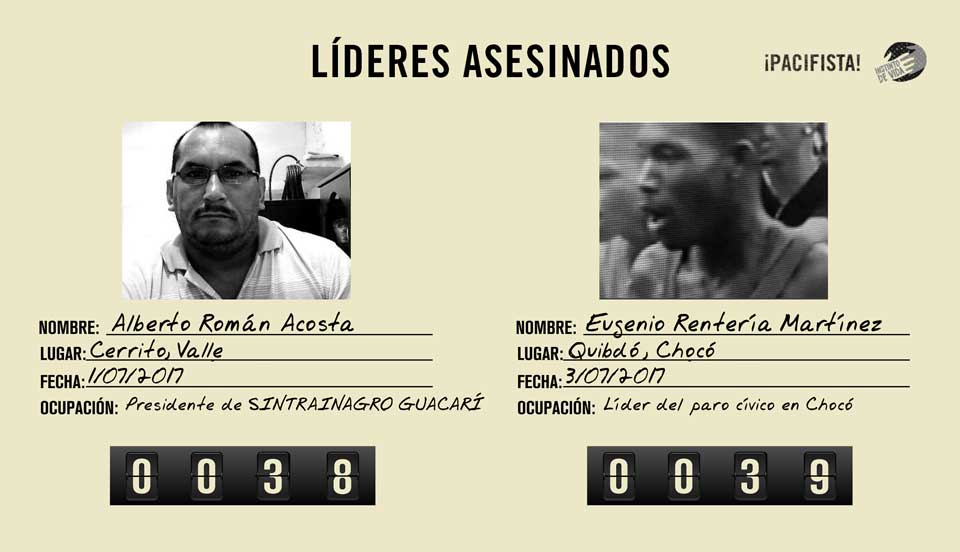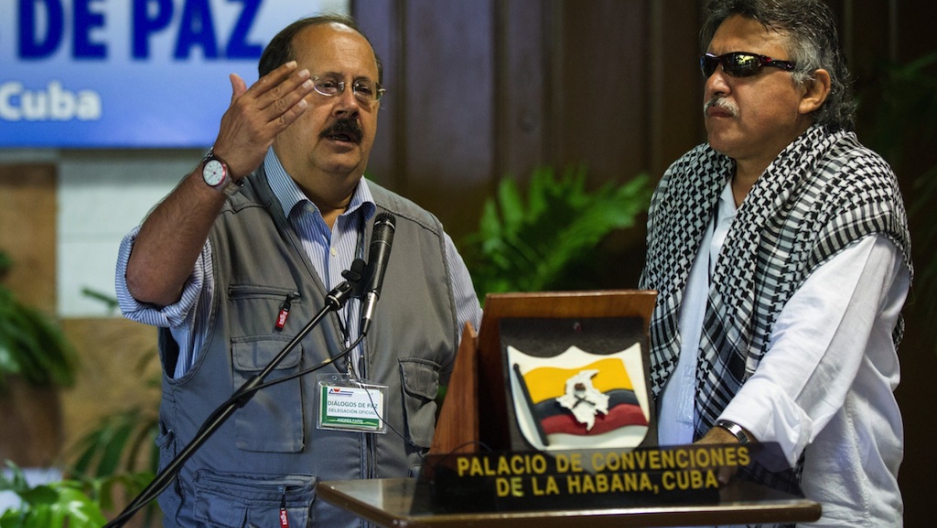 Colombian authorities mistakenly reported that ‘Roman Ruiz’ was killed in an army raid.
Colombian authorities mistakenly reported that ‘Roman Ruiz’ was killed in an army raid.
The Colombian Army announced on Saturday they had killed a top FARC boss in the northwest of the country. However on Sunday – the day of the election – it was revealed they had actually killed Oscar Dario Posada, the rebel commander’s head of security.
News of the guerrilla leader’s alleged death was revealed via the Colombian Army’s Twitter feed, stating that that Alfredo Machardo Alarcon, alias ‘Roman Ruiz’ was a member of the Estado Mayor, the FARC’s central command, made up of 25 commanders.
Military sources claimed that Mr Alarcon was killed in northern Antioquia in a joint operation between the military and the police, which included the participation of a fleet of around 18 helicopters.
President Juan Manuel Santos also took to Twitter to congratulate the country’s armed forces, stating that “the offensive goes on.”
But the announcement of the killing of ‘Roman Ruiz’ was later revealed to be unconfirmed – the National Police amended its statement to say that “a FARC member” had died in the operation.
Rodolfo Palomino, Commander of the National Police, said Sunday that he had provided incorrect information to the Ministry of Defence and the president less than 24 hours before.
“I must make it clear to all Colombians that it was not alias ‘Roman Ruiz’ who was killed, but Oscar Dario Posada,” he said.
Peace talks between the government and the Marxist rebel group have been ongoing in Cuba since November 2012, and will likely a see renewed vigor after Santos’ reelection.
Ruiz is the head of the FARC’s 18th Front, which operates in the departments of Antioquia, Córdoba and Chocó. The Front is suspected of having 250 fighters and 300 militia under its command.
According to the army, Ruiz coordinates FARC’s military strategy in the north of the country.
Authorities claim that Alarcon’s unit is financed by the sale of cocaine and extortion, mainly directed at the gold mining industry that is prevalent in the region.
Since 2012, there has been a $1.25 billion peso ($660,000 USD) bounty for his capture.


